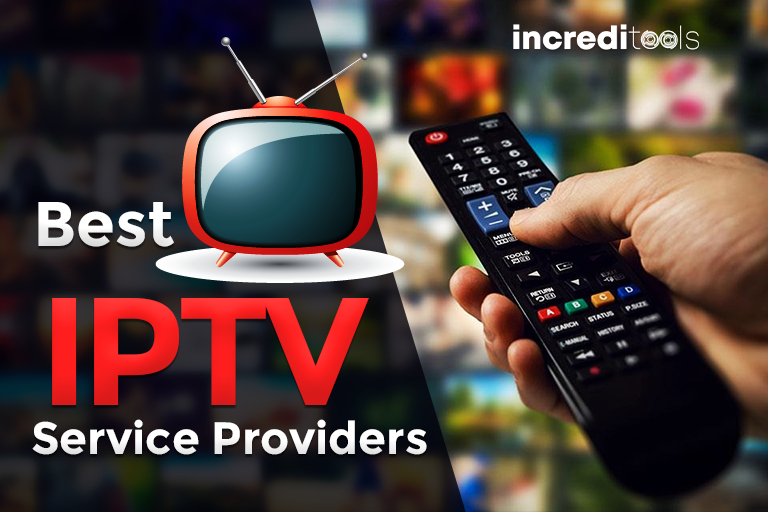amid the transformation brought by digital technology is changing all facets of our lives, the method we experience entertainment has evolved dramatically. Among the revolutionary innovations shaping this landscape exists IPTV, often called IPTV. This technology transforms the conventional television viewing format by delivering content through online channels instead of via conventional cable or satellite methods. As streaming platforms achieve immense popularity, grasping what IPTV entails and how it functions becomes vital for anyone keen on staying at the cutting edge of 21st-century entertainment.
IPTV permits users to access a vast array of television programs, films, and other content on request, creating a world of options for personalized viewing. With its versatility and the ease of accessing shows and movies on various devices, IPTV is rapidly emerging as a popular choice for many viewers. This shift not only boosts user experience but also creates challenges and opportunities for content creators and distributors. As we investigate more, we will uncover the fascinating world of IPTV and uncover why it is regarded as a game-changer in entertainment in modern times.
Comprehending Internet Protocol Television Tech

IPTV, commonly referred to as IP-based broadcasting, revolutionizes the way we enjoy media by streaming television shows over the web as opposed to using traditional satellite or cable systems. iptv-abonnements to IP-based streaming allows for a far more adaptable and dynamic viewing experience. With IPTV, users can view a broad selection of channels and on-demand programs from various devices, including smart TVs, smartphones, tablets, and computers.
One of the key benefits of IPTV is its capability to provide tailored content suggestions and advanced features. Through the utilization of data analytics and user preferences, IPTV services can deliver personalized viewing experiences that adapt specifically to individual tastes. This extent of tailoring was not as possible with traditional broadcast methods, making IPTV a favored choice for tech-savvy viewers who seek tailored entertainment selections.
Additionally, IPTV services supports multiple content types, including live TV, movies, and series, letting users to access top-notch streaming without the restrictions of traditional broadcasting timelines. With the advent of high-speed internet links, IPTV can stream content in high-res and even 4K quality, further enhancing the viewer experience. As a result, IPTV emerges as a flexible and convenient alternative to regular television, reshaping the broadcasting landscape in the 21st era.
Impact on Traditional Broadcasting
The emergence of IPTV has significantly influenced traditional broadcasting systems, disrupting the way content is distributed and consumed. Unlike traditional television, which relies on cable systems, IPTV utilizes internet protocols to deliver video content directly to viewers. This change allows for more flexibility in watching options, enabling users to view their favorite shows on multiple devices, from mobile phones to smart TVs. As a result, legacy broadcasters are forced to adapt their business models to address the evolving demands of consumers.
Additionally, IPTV provides an vast library of available upon request content, as opposed to with the scheduled programming typically found in legacy broadcasting. This access empowers viewers to create their own experiences, choosing what to watch and when, thus enhancing viewer engagement. As a result, broadcasters are increasingly investing in digital platforms to broaden their reach, providing streaming services that rival with established IPTV providers. This competition pressures traditional media companies to evolve or risk losing their audience to more agile and attractive alternatives.
The increasing preference for IPTV is also prompting changes in advertising strategies. With the ability to monitor viewing habits and choices, advertisers can focus on their messages more effectively, leading to tailored ad experiences for viewers. This data-driven approach is changing the environment of television advertising, as traditional broadcasters must now struggle with the accuracy offered by IPTV platforms. As IPTV keeps to evolve, it will likely even more disrupt traditional broadcasting, heralding a fresh era for media viewing.
Future Trends in IPTV
Prospects of Internet Protocol Television is set for notable improvements, motivated by the growing demand for superior content and tailored content consumption. One of the prominent trends is the growing presence of AI in content recommendation systems. As the tech landscape evolves, IPTV providers will leverage AI to assess audience choices and responses, delivering tailored recommendations that improve audience participation. This tailored strategy is anticipated to revolutionize how viewers explore and enjoy their most-loved programs and cinema.
Additionally, major trend is the integration of dynamic options within IPTV platforms. As viewers grow more used to participating with media, IPTV platforms will add features such as live polling on content, interactive storytelling, and immersive experiences. This move towards interactivity not only improves viewer enjoyment but also provides new opportunities for producers to interact with their public in novel ways. Anticipate to see a heightened emphasis on providing immersive viewing experiences that keep users returning for extra.
In addition, the development of fifth-generation technology will greatly enhance IPTV offerings, allowing speedier video playback and higher-quality video eliminating buffering issues. With the enhanced speed of 5G, viewers will be able to watch ultra high-definition and even superior resolution media without interruption, irrespective of their setting. This technological development is set to expand the access of IPTV, making it a viable solution for viewers in both city and country regions. As these trends continue to unfold, IPTV is forecasted to become an more significant part of the entertainment industry in the next decade.
